What does the mass arrest of BNP leaders, activists signify?

Politics in Bangladesh is at a crossroads right now. Following the violence that started unfolding at BNP's rally on October 28, the government has so far arrested over 2,000 BNP activists under 89 cases filed with 32 police stations under the Dhaka Metropolitan Police (DMP), including Secretary General Mirza Fakhrul Islam Alamgir and other top leaders. Over 9,000 activists have been arrested countrywide since the rally, and law enforcement agencies will reportedly intensify their clampdown even more in the days to come. Given the circumstances, The Daily Star asked civil society members about their views on the mass arrest and their implications for a free, fair and acceptable general election in January 2024.
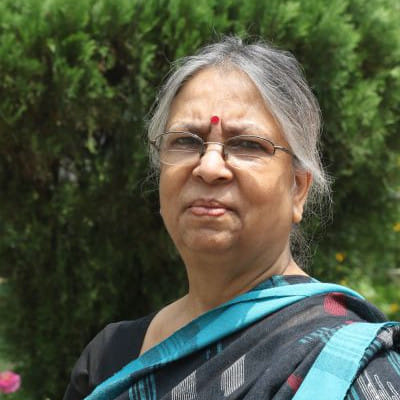
The situation that has arisen since October 28 poses a threat to the human rights of civilians as a whole. Indiscriminate arrests undoubtedly provoke fear among the general population. The public becomes panicked when such incidents increase, as they fear they could also be arrested. This affects people's inner peace, their sense of security, and undermines their sense of safety, which goes against human rights.
The law enforcement agencies may argue that they are acting under the Special Powers Act (referred to as the kala kanun), but are they following the law properly? An important requirement in the law is that detainees must be brought before the courts within 24 hours. Are the thousands of individuals that have been arrested being presented before the court within 24 hours?
Many detained persons are being apprehended based on assumptions and are being left outside of judicial procedure. If the law enforcement officials follow the Special Powers Act accordingly, the detainees must go through the judicial proceedings, and if the accusation is proven, they will receive punishments; if not, they should be released. However, this is not happening. In that case, we can say they are being detained arbitrarily and discriminatorily.
Arresting thousands of people based on assumptions interferes with their freedom of movement and right to life. There is a matter to consider: what are the criteria for arresting these people? The October 28 incidents may have been carried out by a few hundred people, but the reason behind the number of arrests exceeding thousands remains a question.
When we ask the police about any case of domestic violence, rape, harassment and murder, it is often observed that they claim to not find any charges against the supposed perpetrators. Now, my question is: if the law enforcement agencies are making a list of "troublemakers," based on whose allegations and based on what are they doing so?
If someone is being detained for specific crimes such as theft or robbery, that can be comprehensible. But such measures seem to be absent here. Since there are no clear criteria, they can assume anyone is a troublemaker. How can I be sure they would not consider me a troublemaker?
On top of that, if they decide to target a specific political party, that is also an injustice. In a democratic country, anyone can be a member of any political party, so why would they be assumed to be troublemakers without any concrete reason?
Sultana Kamal
Eminent human rights activist
The law enforcement agencies may argue that they are acting under the Special Powers Act, but are they following the law properly? An important requirement in the law is that detainees must be brought before the courts within 24 hours. Are the thousands of individuals that have been arrested being presented before the court within 24 hours?

Bangladesh does not have any credible mechanism to gauge public opinion. Election is not genuine, surveys are not efficient, media is not free and the constitutional provision of referendum is no longer there. Nevertheless, it may be safely argued that the incidents of October 28 have made the people of Bangladesh doubtful about the scope of exercising their voting rights in the forthcoming general election.
As the history and political culture of this country testify, people in this country love their voting rights and aspire to see their representation in the government. This spirit motivated them to engage in the Liberation War in 1971 and later turn in large numbers at the polling booths in elections whenever conducted under a trustworthy government. This explains why an increasing number of people participated in the opposition's movement for a free and fair election in recent months.
The prospect of such an election is hazy now. The speed at which police have filed numerous cases against BNP leaders and activists for the mayhems of October 28, the scale at which they have been arrested, and the uniformity with which they are being denied bail send an unambiguous message. The ruling party is determined to capitalise on its own narratives of October 28 events to muzzle the opposition, and thus to arrange an election according to its design.
Given the memory of the past two elections in 2014 and 2018, it would surely frustrate the democracy-loving people. The opposition party has resorted to hartals and blockades, while the government is rejecting any prospect of negotiation; this deadlock is causing harm to the country's struggling economy.
In the past, civil society and other powerful groups, both domestic and international, could have played a role to end the impasse. People must be thinking where the solution would come from this time, and how.
Overall, this is a time of despair, at least for the people who suffer most when democracy dies, monopoly in every sector prevails, and corruption multiplies in the absence of accountability and balance of power.
Dr Asif Nazrul
Professor of law and researcher on constitutional and environmental laws

The large-scale arrest of opposition party members has grave implications for our democracy. It makes the opposition leaderless and drives its members underground, making it impossible for them to stay afloat and prepare for the upcoming election. The opposition is on fear mode and this drives them out of the playing field, and leaves the electorate without a right to choose. We are witnessing harsh suppression of the opposition at a moment when all political parties should have been holding colourful electoral campaigns in a safe and healthy electoral environment. Picking up leaders from their homes in the dead of night is unlawful and does nothing for our democracy. The silence of the Election Commission is foreboding. The ruling party is walking the wrong road.
Every day, we read of violence perpetrated by ruling party activists. We see no arrests, no investigations and, even in the face of hard-hitting facts, no actions taken. This one-eyed governance of the ruling party is fast losing credibility. So much so that even if we were to believe what it is doing is right, it is failing to deliver that message to the people and the public remain unconvinced. Trust has eroded.
The recent by-elections were an opportunity to build trust and prove that elections under an elected government can be free and fair. The opportunity was totally lost to mindless corruption and rigging. The people are rightfully asking: how can this EC under the present government hold a credible election in 300 seats?
With no real opposition in the field, with high voltage intolerance and fear raging across the political scene along with the proven incompetencies to conduct a fair election, the stage set for the upcoming election is out of whack.
The road the government has chosen is a dead end. It is suicidal for both the ruling party and the country. I cannot help asking, in such a reality: why are we holding an election at all?
Sharmeen S Murshid
Election analyst and CEO of Brotee
If you look at media reports of the last few days, people of the ruling party are mentioned as being present at the scene or found instigating the violence. Why are no arrests being made in this regard? If the authorities were impartial in regard to such arrests, then such questions wouldn't have been raised.

The government's act of arresting opposition leaders and activists right before the election just shows its own weakness. It is doing so to prevent a free and fair election, which most definitely would not go in its favour.
The government's narrative—that the arrests are being made due to criminal acts—cannot be accepted. Recently, one of our ministers insinuated that syndicates cannot be touched. The authorities are not arresting the hoarders; they are not arresting the garment owners responsible for the recent chaos. Instead, they are opening fire on the workers, who are demanding for their due right. The government is doing all this to prevent a surefire defeat in the election.
Notably, the high-ups are allowing the communal force Jamaat to hold demonstrations. This just proves that the government has no ethical obligations to meet, like upholding non-communalism. It only has one goal in mind: staying in power.
Mujahidul Islam Selim
Former president of the Communist Party of Bangladesh

Arbitrarily detaining individuals without justification, especially as a means to target members of a particular political party, will unquestionably have a profound impact on the public. When people are persistently kept in a state of uncertainty or harbour mistrust towards one another, it can lead to potential harassment in the future. This issue also highlights critical human rights concerns.
The situation demands immediate attention from both the law enforcement officials and those responsible for overseeing their actions. Failing to address and rectify this issue promptly could lead to further escalation of the situation, triggering extensive criticism internationally.
The prevalent practice of apprehending individuals who have no direct involvement in the alleged offences or detaining them on the basis of mere suspicion, along with filing anonymous cases, is a recurring problem in our country. Given the public perception of law enforcement, it is imperative that our state security forces act more judiciously and engage more effectively with the general public during these crucial times. Before taking someone into custody, a comprehensive investigation and a rigorous process should be applied.
Brig Gen (retd) Dr M Sakhawat Hussain
Former election commissioner of Bangladesh, and senior fellow at the South Asian Institute of Policy and Governance (SIPG) of North South University (NSU)

We are extremely concerned that the Bangladesh government appears to be walking away from its international pledges to hold a free, fair and participatory election this time. Bangladeshis have repeatedly been denied the right to choose their leaders in the last few elections—including to municipal, local government, and other posts—and this can lead to increasing unrest and risk of violence. Security forces also appear to be acting in a biased manner, targeting the political opposition but failing to act against abuses by ruling party supporters.
Thousands of opposition leaders and supporters are in custody on trumped-up charges, and there are concerning allegations of unlawful arrests and torture in custody. These are not hallmarks of a government that is committed to upholding democracy.
Meenakshi Ganguly
Deputy director, Asia Division, Human Rights Watch
Follow The Daily Star Opinion on Facebook for the latest opinions, commentaries and analyses by experts and professionals. To contribute your article or letter to The Daily Star Opinion, see our guidelines for submission.

 For all latest news, follow The Daily Star's Google News channel.
For all latest news, follow The Daily Star's Google News channel. 
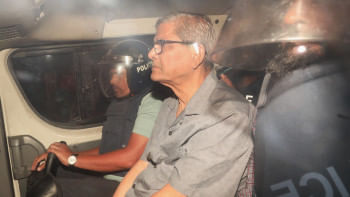

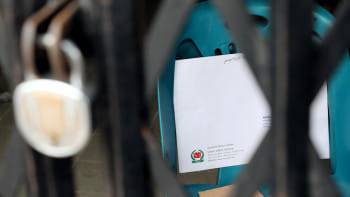



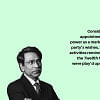
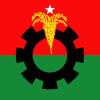

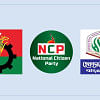
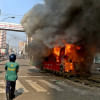


Comments